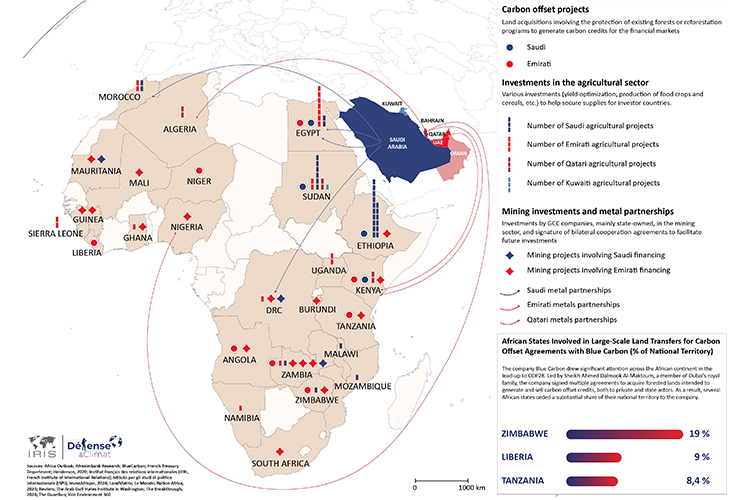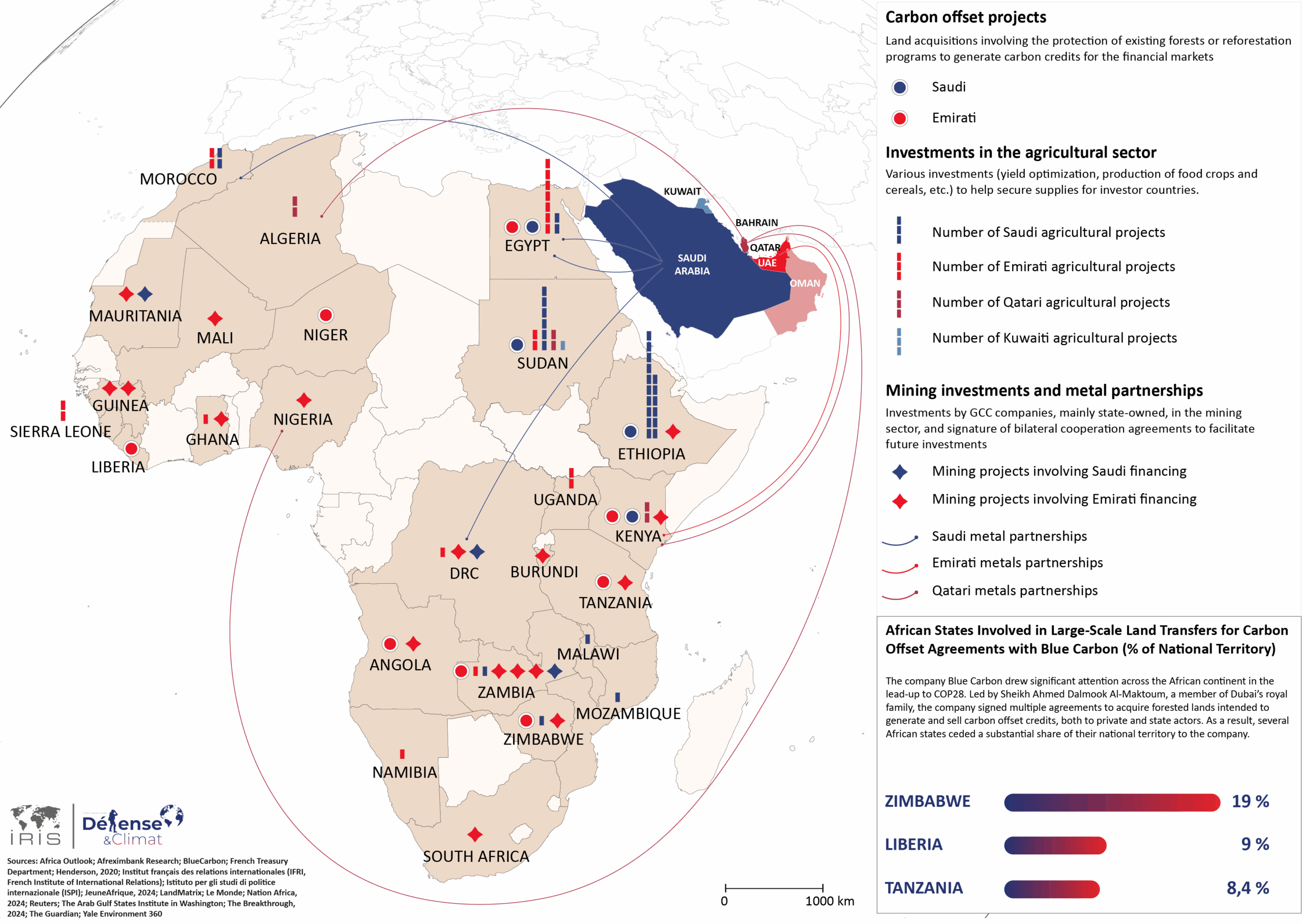Cartographies / Defence and Climate Observatory
13 May 2025
Securing resources on the African continent by Gulf monarchies

Since the early 2000s, the involvment of the Gulf cooperation Council (GCC) states in Africa, mainly of the United Arab Emirates, Saudi Arabia and Qatar, has been reinforced. Climate issues play a particularly key role in multilateral relations between GCC states and the African continent. This growing cooperation is not only shown in multilateral forums dedicated to climate issues, such as the COP, but also in bilateral relations developed by these countries.
Nonetheless, just like other foreign actors involved on the continent, the actions of the Gulf monarchies in Africa reveal a certain ambivalence. The GCC states see this cooperation as a lever for structuring part of their national response to climate change: by mobilising available resources on the African continent, they are partially outsourcing the main lines of their climate strategy, especially their adaptation and attenuation efforts. Regarding the latter, the GCC States are massively investing in the mining sector, especially to secure the materials needed for the development of renewable energies. As part of their decarbonisation targets, the Gulf monarchies are buying up lands with the aim of converting them into carbon credits in a form of “green grabbing” (Caramel, 2024). As for efforts to adapt to climate change, these countries are securing their access to food resources by acquiring agricultural land, a process that often remains opaque and raises ethical questions (Le Bihan, 2022).
This map comes from the “Climate Diplomacy of the Gulf Monarchies: Leverage and Power Tool” note published within the scope of the IRIS Défense & Climat Observatory on behalf of the French Ministry of the Armed Forces’ Directorate General for International Relations and Strategy (DGRIS).




